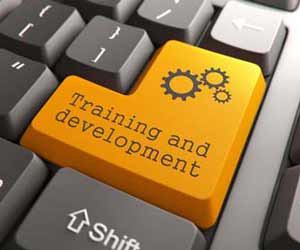Training to be a Ski Coach
Around the country there are a number of outstanding program directors who have been coaching for years. Some of these coaches had no formal coaching education, other than what they learned as racers from their own coaches and from on-the-job training. Periodically, new coaches come to programs after wrapping up careers with the U.S. Ski Team. For the majority of coaches without reputations preceding them, the U.S. Ski Coaches Association provides educational opportunities and a certification process.

In terms of advancement, ski coaching is no different than other areas of society. In coaching, as in businesses and other organizations, the larger the enterprise, the more defined the pathways to senior positions. Even after acquiring a coaching position based on a racing career, moving to a position with a larger program means having USSCA accreditation.
Similar to PSIA, the three primary certification levels were classified and known for a long time as Level I, Level II, and Level III. The Level I program is now known as the Alpine Pre-Course, Level II is now the National Alpine Coaches School (NACS), and Level III refers to USSCA certification. Neither the pre-course nor the NACS programs entail an exam, though one is required for certification level. Of the 3,000 members of the U.S. Ski Coaches Association, there are currently about 600 NASCA graduates and about seventy fully certified coaches.
For more information on ski coaching, contact the following organizations:
U.S. Ski Coaches Association
PO Box 100
Park City, UT 84060
(801) 649-9090
Canadian Ski Coaches Federation
774 Decarie Boulevard, Suite 310
St. Laurent, Quebec H4L 3L5
CANADA
(514) 748-2648
Alpine Pre-Course
The Alpine Pre-Course is conducted annually in all USSA divisions and is an overview of the essential knowledge areas required for coaching. It covers two days of both lectures and on-snow practical exercises. Selected staff members from the U.S. Ski Team and other certified coaches and officials provide information on physiology, sports psychology, and pedagogy. On-snow time is devoted to various drills and exercises used to teach appropriate skills. Course setting, an essential coaching skill, is also addressed.
The USSA National Coaches Academies are intensive, full-day coaches education events to enhance the professional development of coaches beyond the USSA on-snow clinics. The academies include interaction with U.S. Ski Team staff and athletes, and other experts from the USSA, PSIA, USOC (U.S. Olympic Committee), and others. Content includes skiing as well as classroom sessions on the topics of sport science, sport medicine, pedagogy, management, and leadership.
Certification
For coaches who desire to become full-time program directors or want to work as coaches on the divisional level, certification is the logical next step. The certification exam is conducted over three days, usually preceding the NACS. To qualify to take the test, the candidate must be at least twenty-one years old, have a minimum of three years’ coaching experience, have attended the NACS, have an Alpine Official’s Level II certification and a minimum Level II (Associate) certification through PSIA, submit five course-setting critiques, and have completed three of six ACEP Level II courses or the educational equivalent. The exam has six sections, which involve two coaching assignments, two course-setting assignments, basic and advanced skiing demonstrations, an oral interview on selected topics over the entire spectrum of ski racing knowledge, the ability to analyze video, and a written exam.
— View Ski Resort Job Postings —
Master Coach
It’s worth mentioning that there is one more certification level, Master Coach, which is essentially an internship with the U.S. Ski Team. These coaches work with national team racers on the Nor-Am and World Cup level.
Ski Academy
For coaches on the local level, with the exception of the program director, it’s difficult to work full time unless you are located at a resort complete with local schools. Incorporating athletics with scholastics are the ski academies. Athletes typically attend classes in the morning and are on the hill training early in the afternoon. Some academies, such as Mt. Hood Academy, have students enrolled in a nearby school but provide supervised housing. Others, such as Burke Mountain Academy, combine school and housing facilities on one campus. There may be a distinct separation of duties between the ski coaches and academic instructors, but if a ski coach is seriously interested in working in an academy environment, it may make long-term sense to check out college requirements toward a teacher’s certificate.


 Teach English in Asia
Teach English in Asia  Cruise Ship Jobs
Cruise Ship Jobs  Alaska Fishing Industry Jobs
Alaska Fishing Industry Jobs  Sharing Economy / Gig Economy
Sharing Economy / Gig Economy